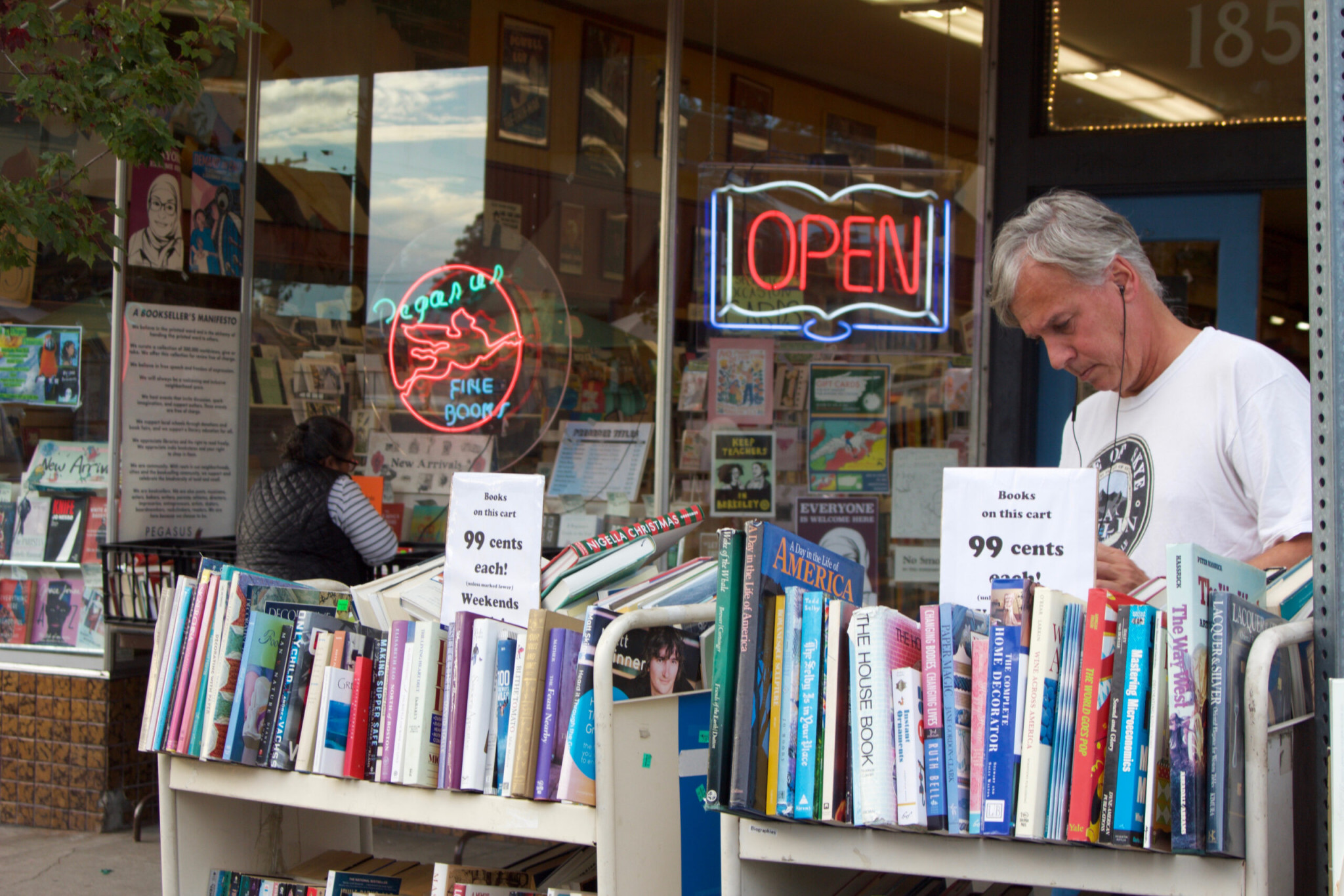1969 was a busy year across the bay. The first computer chip was developed in Silicon Valley, the precursor of the internet was launched, and, in Berkeley, Pegasus Books opened its doors. It was started by Matt Wyse in the back of his wife’s vintage clothing store. Now coming up on its fiftieth anniversary, Pegasus is still going strong, though the world of booksellers is constantly changing. Current owner, Amy Thomas, who has been working at Pegasus since 1980, shared her perspective on the many challenges that bookstores have faced. Thomas said that “the very first challenging business models that threatened bookstores … were the strip mall and the mall.” Originally, everyone wanted a bookstore in their mall, such as Barnes and Noble, who dominated the market by discounting much of their stock at 40 percent off. If independent sellers wanted to keep up with Barnes and Noble’s low prices, they would be left with zero profit
These battles are ongoing, but they pale in comparison to the competition that Amazon has brought to small bookstores. The biggest hallmark of Amazon’s business strategy is losing money in order to gain market share.
Essentially, they discount their products so much that customers will only buy from them. Thomas has experienced this firsthand. She said, “we were being challenged by a company where it was really immaterial to them, how much they lose. Whereas with me, it’s not immaterial.”
The first thing Pegasus did to fight back was to “work night and day to think of creative ways to engage with the community,” said Thomas. For Pegasus, this meant coming up with unique events like the monthly “Jazz Stories” where musicians come in to the store to play jazz and tell stories.
Another thing that sets Pegasus apart is the variety in what they sell: new, used, and remaindered books. The manager of the store’s Solano branch, Marjorie Darrough, said this is “so people can get things at different price points.” This means that while Pegasus cannot lower its prices to the levels of larger distributors, they offer customers more than just one option. Many of Berkeley’s independent bookstores have closed, yet Pegasus sparked something in the community. “People are starting to feel that they don’t want Amazon to own the entire world ... [The community has] rallied and said, ‘These are the things that we care about and independent businesses are among them.’ We’ve had so much love from people over the years, just saying, ‘we want you to stay here, we’re happy that you’re here,’” said Darrough.
The story of Pegasus is a story of success as much as it is a story of survival. Their struggle is not over, but support from the Berkeley community is why they are still standing.





